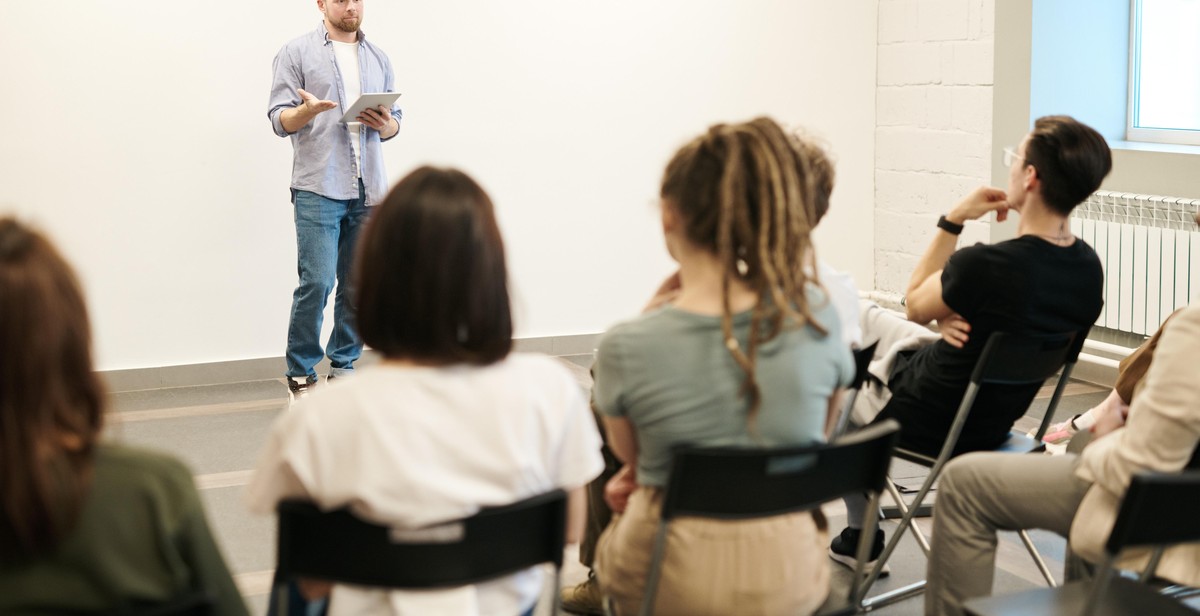The Art of Listening: How to Improve Communication in Your Relationship
Communication is the foundation of any successful relationship. However, it is not just about talking, but also about listening. Listening is an art that requires practice, patience, and a willingness to understand and empathize with your partner. In this article, we will discuss the importance of listening in a relationship and provide tips on how to improve your communication skills.
The Importance of Listening in a Relationship
Listening is essential in any relationship because it shows your partner that you care about what they have to say. It also helps to build trust, respect, and emotional connection. When you listen to your partner, you are giving them the space to express their thoughts, feelings, and concerns. This, in turn, can lead to better problem-solving, conflict resolution, and intimacy.
Tips for Improving Your Listening Skills
- Be present and attentive
- Avoid distractions
- Show empathy and understanding
- Ask questions and clarify
- Acknowledge your partner’s feelings
- Practice active listening
By following these tips, you can become a better listener and improve your communication skills in your relationship. Remember, listening is not just about hearing words, but also about understanding and connecting with your partner on a deeper level.

The Importance of Listening in a Relationship
Listening is an essential part of any successful relationship. It involves paying attention to what your partner is saying and understanding their perspective. When you actively listen, you show that you care about your partner’s thoughts and feelings, which builds trust and understanding between you both.
Building Trust and Understanding
When you listen to your partner, you show that you value their opinions and feelings. This builds trust because your partner feels heard and understood. When trust is established, it creates a safe and secure environment where both partners can be vulnerable and open with each other. This allows for deeper emotional connection and intimacy in the relationship.
Understanding your partner’s perspective also helps to reduce misunderstandings and conflict. When you listen to your partner, you can better understand their point of view and avoid making assumptions or jumping to conclusions. This leads to more productive conversations and reduces the likelihood of arguments or hurt feelings.
Reducing Misunderstandings and Conflict
Active listening also helps to reduce conflict by allowing both partners to express their thoughts and feelings without interruption or judgement. When you listen to your partner, you show that you respect them and their feelings, even if you don’t necessarily agree with them. This creates a more harmonious relationship where both partners feel heard and valued.
In conclusion, listening is an important skill to have in any relationship. It builds trust and understanding, reduces misunderstandings and conflict, and creates a more harmonious and intimate connection between partners. By actively listening to your partner, you can improve communication and strengthen your relationship.

Barriers to Effective Listening
Listening is a crucial aspect of communication, especially in relationships. However, there are various barriers that hinder effective listening, and they include:
Distractions and Multitasking
One of the biggest barriers to effective listening is distractions and multitasking. When you are not fully present in a conversation, your mind wanders, and you miss important details that could have a significant impact on the conversation. Distractions can be external, such as noise or interruptions, or internal, such as daydreaming or thinking about something else. Multitasking, on the other hand, divides your attention and reduces your ability to listen effectively.
Preconceived Notions and Assumptions
Another barrier to effective listening is preconceived notions and assumptions. When you have preconceived ideas about someone or something, you tend to filter out information that contradicts your beliefs. This confirmation bias can prevent you from fully understanding the other person’s perspective and can lead to misunderstandings and conflicts. Assumptions, on the other hand, can lead to misunderstandings because you are not seeking clarification or asking questions to confirm your assumptions.
Emotional Reactivity
Emotional reactivity is another barrier to effective listening. When you are emotionally reactive, you tend to react to the other person’s words or behavior instead of listening to what they have to say. This can lead to a breakdown in communication because you are not fully understanding the other person’s perspective. Emotional reactivity can also lead to defensiveness, which can escalate the conflict and prevent a resolution.
It is important to be aware of these barriers to effective listening and to take steps to overcome them. By being fully present, avoiding preconceived notions and assumptions, and managing emotional reactivity, you can improve your listening skills and enhance your communication in your relationship.
Active Listening Techniques
Active listening involves paying attention to what the other person is saying and responding in a way that shows interest and understanding. Here are some techniques to help improve your active listening skills:
Pay Attention and Show Interest
When your partner is speaking, give them your full attention. Avoid distractions like your phone or the TV and maintain eye contact. Show interest by nodding your head, making appropriate facial expressions, and using verbal cues like “uh-huh” or “go on.”
Paraphrase and Reflect
After your partner has finished speaking, paraphrase what they said to show that you understand their point of view. This also gives them an opportunity to clarify any misunderstandings. Reflecting on their emotions can also be helpful, such as saying “It sounds like you’re feeling frustrated.”
Ask Questions and Clarify
Ask open-ended questions to encourage your partner to share more about their thoughts and feelings. Avoid interrupting or assuming you know what they are going to say. Clarify any confusing or ambiguous statements by asking for more information or examples.
| Question | Not an open-ended question |
|---|---|
| How do you feel about that? | Do you feel good or bad about that? |
| What was your experience like? | Did you have a good experience? |
By using these active listening techniques, you can improve communication in your relationship and deepen your understanding of your partner’s thoughts and feelings.
Tips for Improving Communication Through Listening
Effective communication in a relationship is vital for its success. Listening is a significant aspect of communication that can help improve relationships. Here are some tips to improve communication through listening:
Be Present and Mindful
Being present and mindful means paying attention to what the other person is saying without distraction. Avoid multitasking or interrupting the speaker. Additionally, avoid thinking about your response while the other person is talking. Instead, focus on understanding their message and their perspective. This can help you respond appropriately and avoid misunderstandings.
Practice Empathy and Understanding
Empathy involves understanding and sharing the feelings of the other person. It is essential to practice empathy to improve communication. Try to put yourself in their shoes and see things from their perspective. This can help you understand their feelings and respond appropriately. Also, avoid judging or criticizing the speaker’s feelings or opinions. Instead, show empathy and understanding.
Be Open and Honest
Openness and honesty are essential for effective communication. Be honest about your feelings and opinions. Also, encourage the other person to be open and honest with you. This can help build trust and improve communication. Additionally, avoid being defensive or dismissive of the other person’s feelings or opinions. Instead, listen to them and respond respectfully.
By following these tips, you can improve communication through listening. Effective communication can help build stronger relationships and prevent misunderstandings.

Conclusion
Effective communication is the foundation of any successful relationship. It involves listening, understanding, and responding to your partner’s needs and concerns. The art of listening is a crucial aspect of communication that can improve your relationship significantly.
Listening is not just hearing what your partner says; it involves paying attention to their body language, tone of voice, and emotions. When you listen actively, you show your partner that you value their opinions and feelings. This creates a safe and supportive environment where both partners feel heard and understood.
Improving communication in your relationship takes time and effort. It requires you to be present, patient, and empathetic. Remember that effective communication is a two-way street. You need to be willing to listen to your partner and express your own thoughts and feelings openly and honestly.
By following the tips outlined in this article, you can improve your communication skills and strengthen your relationship. Remember to be patient, stay positive, and practice active listening. With time and effort, you can build a healthy and fulfilling relationship based on mutual respect and understanding.
References
- Guerrero, L. K., Anderson, P. A., & Afifi, W. A. (2011). Close encounters: Communication in relationships. Sage Publications.
- Hopf, C., Huber, O. W., & Weiß, S. (2017). Listening and relationship satisfaction: The moderating role of communication channel. Communication Research, 44(7), 1001-1022.
- Weger Jr, H., Castle Bell, G., Minei, E. M., & Robinson, M. C. (2014). The relative effectiveness of active listening in initial interactions. International Journal of Listening, 28(1), 13-31.
